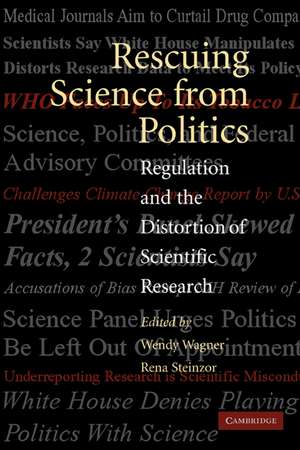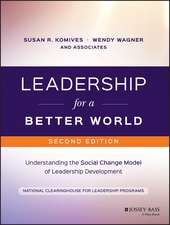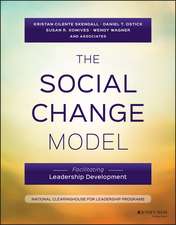Rescuing Science from Politics: Regulation and the Distortion of Scientific Research
Editat de Wendy Wagner, Rena Steinzoren Limba Engleză Paperback – 30 iul 2006
| Toate formatele și edițiile | Preț | Express |
|---|---|---|
| Paperback (1) | 287.66 lei 6-8 săpt. | |
| Cambridge University Press – 30 iul 2006 | 287.66 lei 6-8 săpt. | |
| Hardback (1) | 683.08 lei 6-8 săpt. | |
| Cambridge University Press – 23 iul 2006 | 683.08 lei 6-8 săpt. |
Preț: 287.66 lei
Nou
Puncte Express: 431
Preț estimativ în valută:
55.04€ • 57.62$ • 45.54£
55.04€ • 57.62$ • 45.54£
Carte tipărită la comandă
Livrare economică 05-19 aprilie
Preluare comenzi: 021 569.72.76
Specificații
ISBN-13: 9780521540094
ISBN-10: 0521540097
Pagini: 332
Dimensiuni: 152 x 229 x 19 mm
Greutate: 0.45 kg
Editura: Cambridge University Press
Colecția Cambridge University Press
Locul publicării:New York, United States
ISBN-10: 0521540097
Pagini: 332
Dimensiuni: 152 x 229 x 19 mm
Greutate: 0.45 kg
Editura: Cambridge University Press
Colecția Cambridge University Press
Locul publicării:New York, United States
Cuprins
Prologue Donald Kennedy; Introduction: principled science Wendy Wagner and Rena Steinzor; Part I. Freedom and Independence: 1. Defending clean science from dirty attacks Thomas McGarity; 2. Basic science at risk: protecting the independence of research Katherine S. Squibb; 3. Publication bas, data ownership and the funding effect in science: threats to the integrity of biomedical research Sheldon Krimsky; 4. Science and subpoenas: when do the courts become instruments of manipulation? Paul M. Fischer; Part II. Transparency and Honesty: 5. Smothering the future: the data quality act and adaptive governance Donald Hornstein; 6. The dual legacy of Daubert v. Merrell-Dow Pharmaceutical: trading junk science for junk science Carl Cranor; 7. Using science in a political world: the importance of transparency in natural resource regulation Holly Doremus; 8. Two models for scientific transparency in environmental law David Adelman; 9. The transformation of science into law: default reasoning in international trade disputes Vern R. Walker; Part III. Public Infrastructure: 10. Politicizing Peer Review: the scientific perspective David Michaels; 11. Politicizing peer review: the legal perspective Sidney Shapiro; 12. The government role in scientific research John S. Applegate; Part IV. Recommendations and conclusion Wendy Wagner, J.D. and Rena Steinzor, J.D.
Recenzii
"These are difficult times for science in the zone where it converges with public policy. . . . [S]cience has been playing a critically important role in several areas that have become important exercises of government responsibility, including, but not limited to environmental quality regulations, litigation over damages associated with the external costs of private activity (toxic torts), and the legal responsibility of manufacturers for product harms. What has happened, in this more political contemporary environment, to science and the people who practice it? That is the subject of this book."
From the Prologue by Dr. Donald Kennedy, Stanford University and Editor of Science
"This compendium by some of the nation's top philosophers and legal scholars provides a chilling portrait of the heavy burdens on the scientific enterprise that have evolved over the past decade. Science remains an exquisitely social institution, with human fragilities, strengths, and follies. The marketplace of ideas is fettered by competing political interests. Democracy rests on an informed public that freely consents to be governed. This book reveals the precarious nature of scientific information on which any democratic society must depend."
Devra Davis, Director, Center for Environmental Oncology, University of Pittsburgh Cancer Institute
"For those who think of science as an honest and objective broker in policy making, this volume paints a very different picture, and it's not pretty. But it's the ugly side of the regulatory process, where scientific research is often distorted to serve questionable ends, that badly needs greater exposure. This book is an eye-opener that not only documents the problems, but also takes great pains to make sensible proposals for reform that merit serious consideration."
Mark S. Frankel, Ph.D., Director, Scientific Freedom, Responsibility & Law Program, American Association for the Advancement of Science
"This book begins with a sobering prologue by Science magazine editor-in-chief and former FDA commissioner Donald Kennedy alerting us to the dangers posed by the increasingly ruthless tactics used by powerful opponents to health and environmental regulations. The book proceeds with detailed example after example showing how opponents to governmental protections have engaged in deliberate and pernicious efforts to subvert the legitimate scientific process for their interest or that of their client and illustrating the Orwellian manner in which the concept of 'sound science' has been corrupted by special interests. This book is a must-read for anyone who cares deeply about science or how it is being both used and abused in public policy."
Michael E. Mann, Director of the Earth System Science Center at Penn State University
"At a time when the United States government is pushing the limits of the law in the interest of risk-producing industries, this book provides a much-needed scholarly analysis of our state of affairs and makes it clear that our policies require recalibration in the interest of public welfare."
New England Journal of Medicine
"This book does an excellent job of flagging the concerns and pointing us in the right direction toward reform."
Jeffrey C. Lerner, Ph.D. Plymouth Meeting, Pennsylvania
From the Prologue by Dr. Donald Kennedy, Stanford University and Editor of Science
"This compendium by some of the nation's top philosophers and legal scholars provides a chilling portrait of the heavy burdens on the scientific enterprise that have evolved over the past decade. Science remains an exquisitely social institution, with human fragilities, strengths, and follies. The marketplace of ideas is fettered by competing political interests. Democracy rests on an informed public that freely consents to be governed. This book reveals the precarious nature of scientific information on which any democratic society must depend."
Devra Davis, Director, Center for Environmental Oncology, University of Pittsburgh Cancer Institute
"For those who think of science as an honest and objective broker in policy making, this volume paints a very different picture, and it's not pretty. But it's the ugly side of the regulatory process, where scientific research is often distorted to serve questionable ends, that badly needs greater exposure. This book is an eye-opener that not only documents the problems, but also takes great pains to make sensible proposals for reform that merit serious consideration."
Mark S. Frankel, Ph.D., Director, Scientific Freedom, Responsibility & Law Program, American Association for the Advancement of Science
"This book begins with a sobering prologue by Science magazine editor-in-chief and former FDA commissioner Donald Kennedy alerting us to the dangers posed by the increasingly ruthless tactics used by powerful opponents to health and environmental regulations. The book proceeds with detailed example after example showing how opponents to governmental protections have engaged in deliberate and pernicious efforts to subvert the legitimate scientific process for their interest or that of their client and illustrating the Orwellian manner in which the concept of 'sound science' has been corrupted by special interests. This book is a must-read for anyone who cares deeply about science or how it is being both used and abused in public policy."
Michael E. Mann, Director of the Earth System Science Center at Penn State University
"At a time when the United States government is pushing the limits of the law in the interest of risk-producing industries, this book provides a much-needed scholarly analysis of our state of affairs and makes it clear that our policies require recalibration in the interest of public welfare."
New England Journal of Medicine
"This book does an excellent job of flagging the concerns and pointing us in the right direction toward reform."
Jeffrey C. Lerner, Ph.D. Plymouth Meeting, Pennsylvania
Descriere
This book examines how dominant interest groups manipulate the available science to support their positions.





















